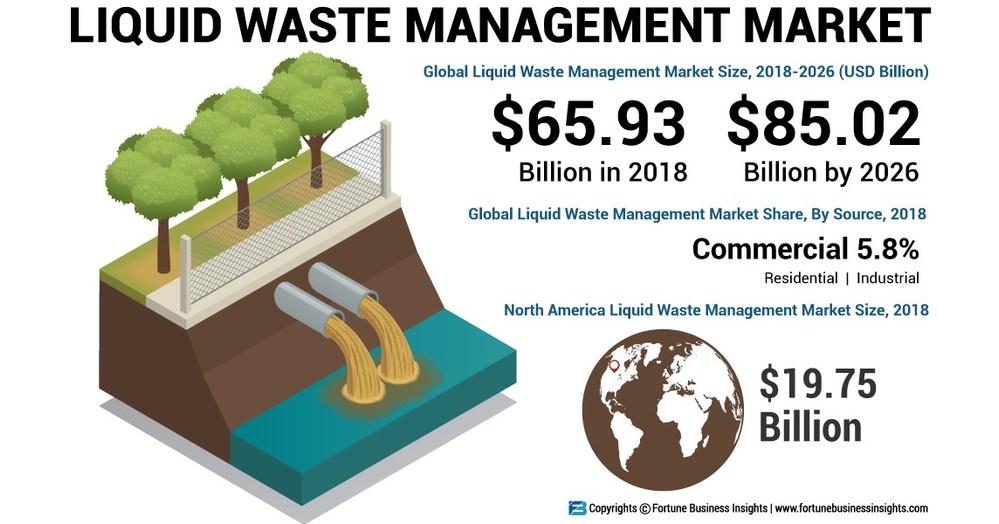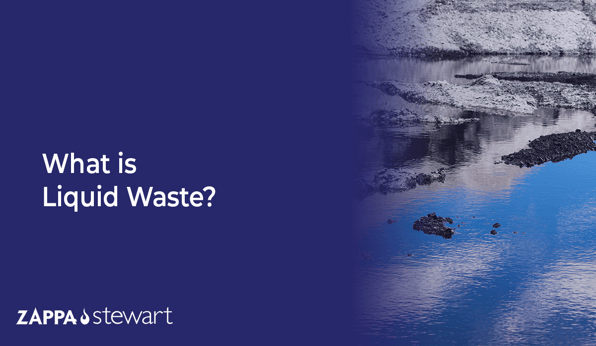An Unbiased View of Reclaim Waste
An Unbiased View of Reclaim Waste
Blog Article
Everything about Reclaim Waste
Table of ContentsWhat Does Reclaim Waste Do?Our Reclaim Waste StatementsReclaim Waste Things To Know Before You Get ThisThe Main Principles Of Reclaim Waste 4 Simple Techniques For Reclaim Waste
Explore the kinds, events, and types of liquid waste. Residential sewage waste refers to the waste and products from a residential septic system. This kind of waste is produced by human beings in houses, institutions, and various other buildings. This only includes septic systems that have a drainpipe area. The appropriate management and disposal of residential sewage waste need liquid waste to be moved to a sewage therapy plant where the proper approaches and equipment are used to cleanse and throw away waste.
Industrial waste frequently consists of possible hazards, such as flammable products or a mixture of liquid and strong waste items, and calls for an advanced and thorough disposal process. The disposal of industrial waste commonly involves the filtering of waste prior to transport to guarantee secure and proper disposal. Industrial waste is produced from results and runoff of industrial procedures and manufacturing.
This sort of waste can not use the exact same sewer monitoring transport or procedures as septic or business fluids. The commercial waste management process requires the inspection and screening of fluid waste before it undertakes the disposal process (liquid waste disposal). Runoff waste is the fluid waste that originates from overflow and excess stormwater in extremely inhabited locations or cities
Overflow waste can trigger contamination and flooding if not managed effectively. Discover more regarding drain cleaning and waste administration. Guaranteeing proper waste management can avoid disasters and decrease environmental injury. Both individuals in property settings and experts in industrial or production sectors can profit from recognizing the procedures and laws of liquid waste administration.
Not known Facts About Reclaim Waste
Call PROS Services today to learn more about our waste monitoring and disposal services and the correct ways to look after the liquid waste you generate.
(http://go.bubbl.us/e67627/7593?/Reclaim-Waste)This so-called 'wastewater' is not just an important source but, after therapy, will certainly be launched to our land, waterways or the sea. Utilized water from toilets, showers, baths, kitchen sinks, laundries and commercial processes is recognized as wastewater.

water utilized to cool down machinery or clean plant and tools). Stormwater, a form of wastewater, is drainage that flows from farming and urban locations such as roofing systems, parks, yards, roadways, courses and rain gutters into stormwater drains pipes, after rain. Stormwater moves neglected straight to local creeks or rivers, ultimately getting to the sea.
Little Known Facts About Reclaim Waste.
In Queensland, the majority of wastewater is dealt with at sewer treatment plants. Wastewater is delivered from residential or commercial sites with a system of drains and pump stations, known as sewerage reticulation, to a sewage therapy plant.
The Division of Natural Resources advises city governments about managing, operating and maintaining sewage systems and therapy plants. In unsewered locations, city governments might need householders to mount specific or family sewage therapy systems to deal Find Out More with domestic wastewater from commodes, cooking areas, washrooms and washings. The Department of Natural Resources authorizes the usage of home systems when they are proven to be reliable.
A lot of stormwater gets no treatment. In some brand-new class, therapy of some stormwater to eliminate litter, sand and gravel has started using gross toxin traps. Wastewater therapy happens in four phases: Removes strong issue. Larger solids, such as plastics and various other items wrongly released to drains, are removed when wastewater is passed via screens.
Makes use of small living microorganisms knows as micro-organisms to damage down and remove staying dissolved wastes and great particles. Micro-organisms and wastes are included in the sludge.
The Definitive Guide to Reclaim Waste
Nutrient elimination is not offered at all sewer treatment plants since it needs expensive specialist devices. Clear liquid effluent generated after therapy may still include disease-causing micro-organisms - industrial wastewater treatment.

Most wastewater moves right into the sewage system. Under the Act, local federal governments provide authorizations and licences for eco appropriate tasks (Ages) involving wastewater releases that could have a local impact.
What Does Reclaim Waste Mean?
Otherwise, samples are considered laboratory evaluation. Frequently many tests are needed to develop the levels of each of the different contaminants such as oils, hefty metals and pesticides in water. Tracking provides factual information regarding water top quality and can validate that licence conditions are being satisfied. The info gotten through monitoring supplies the basis for making water top quality decisions.
Report this page